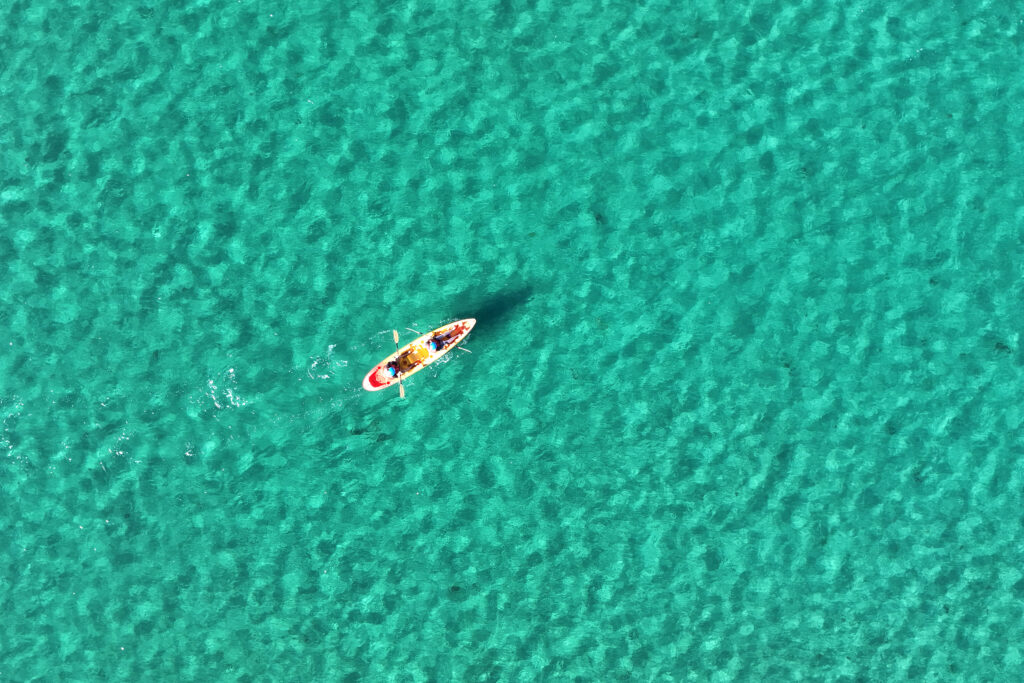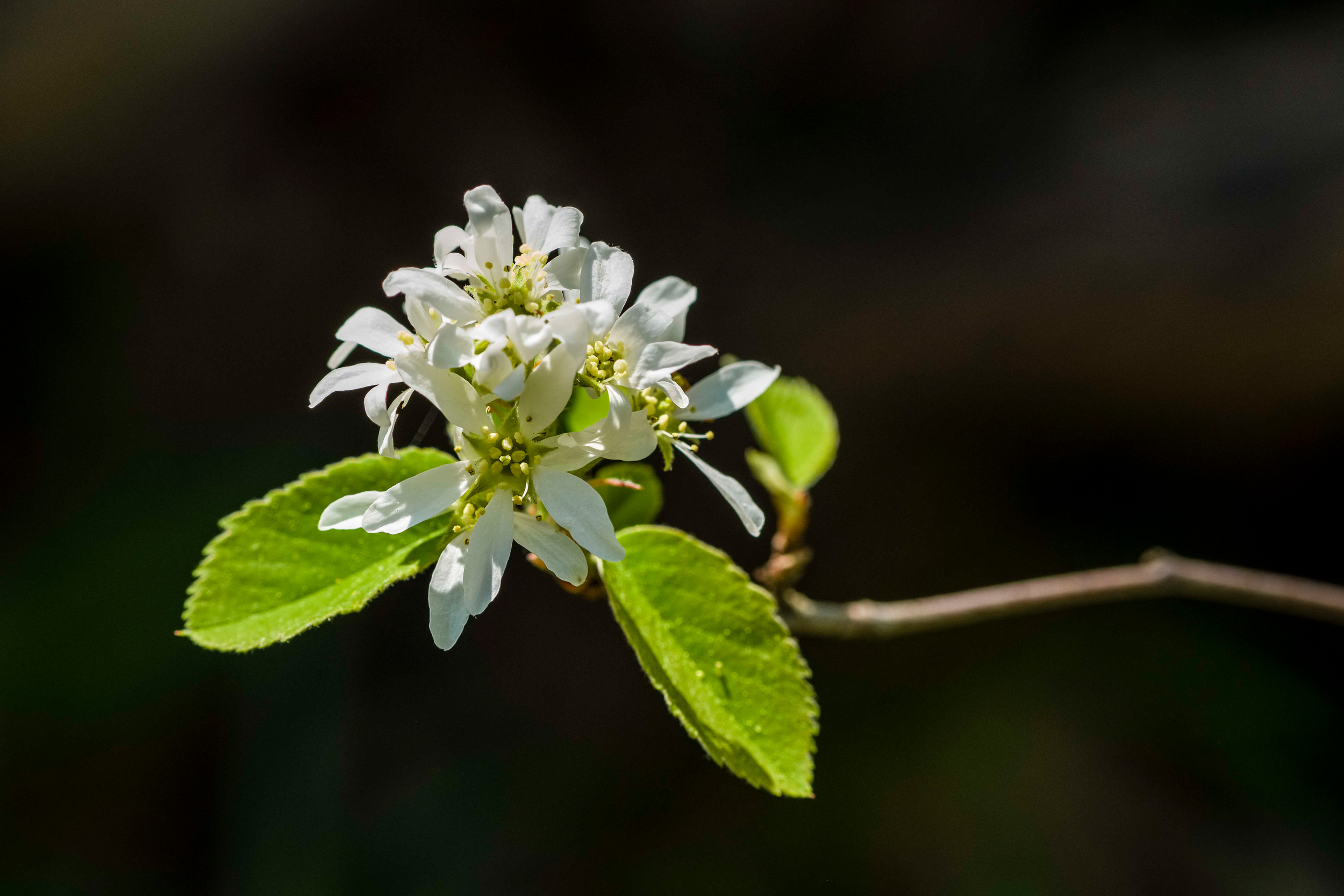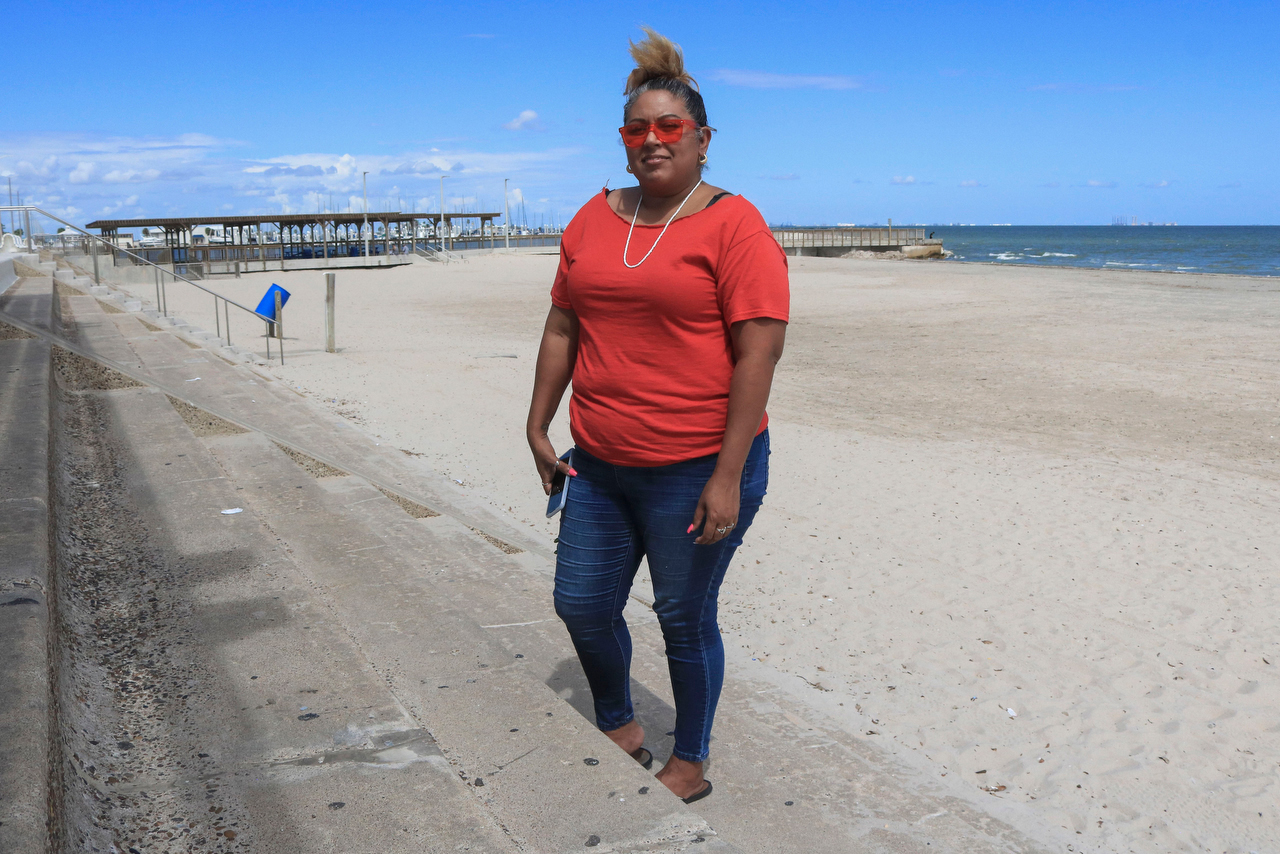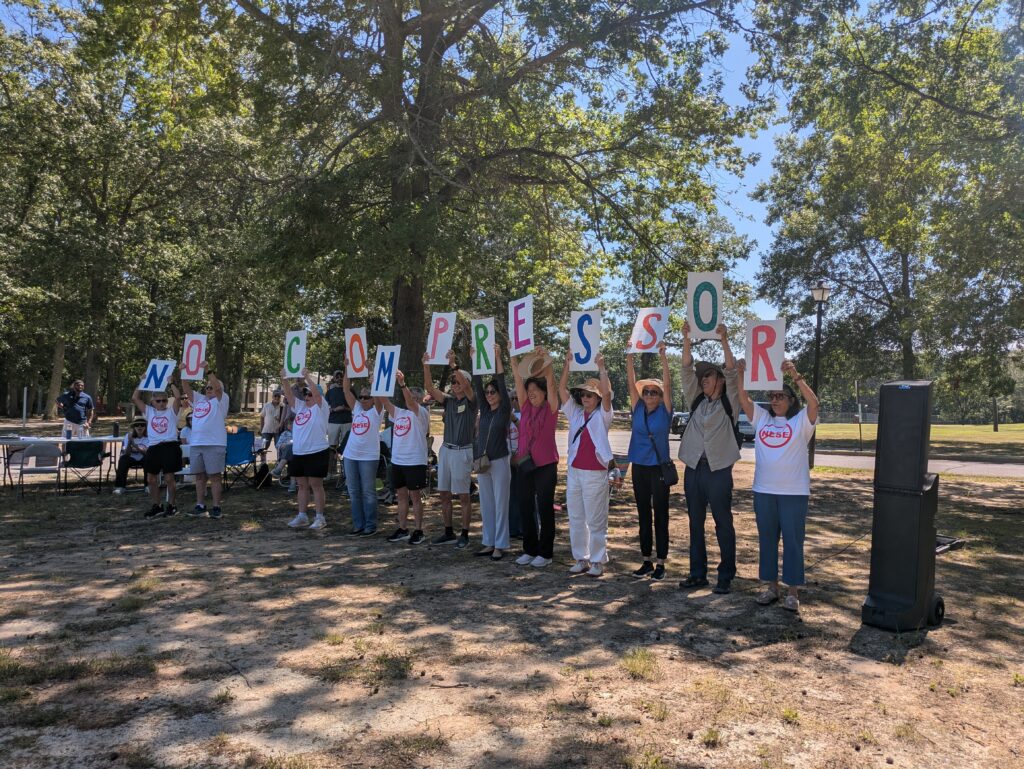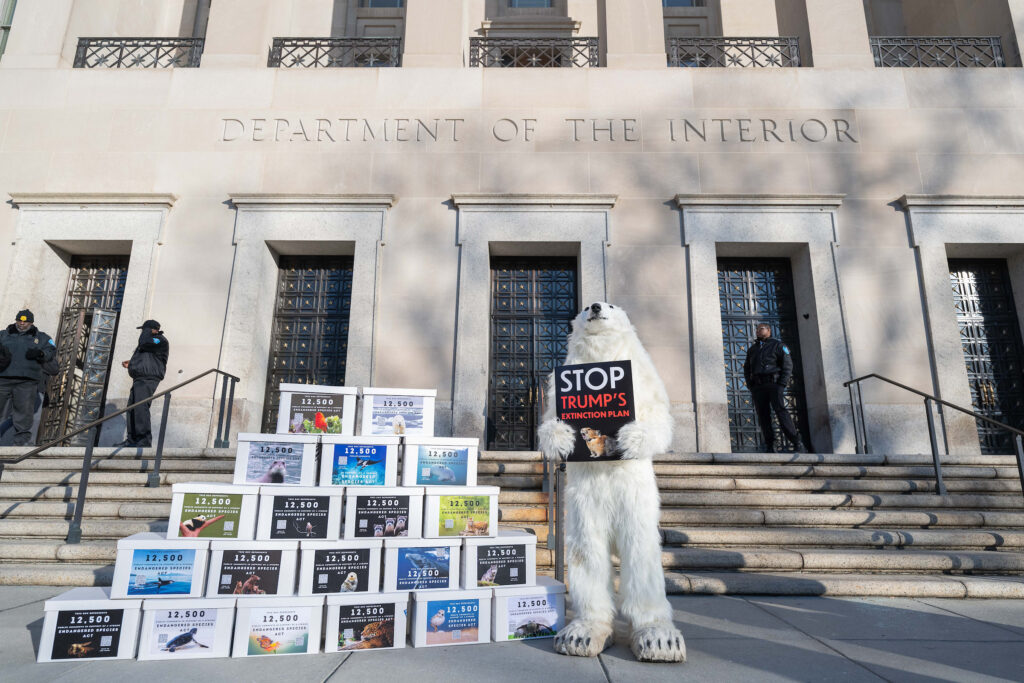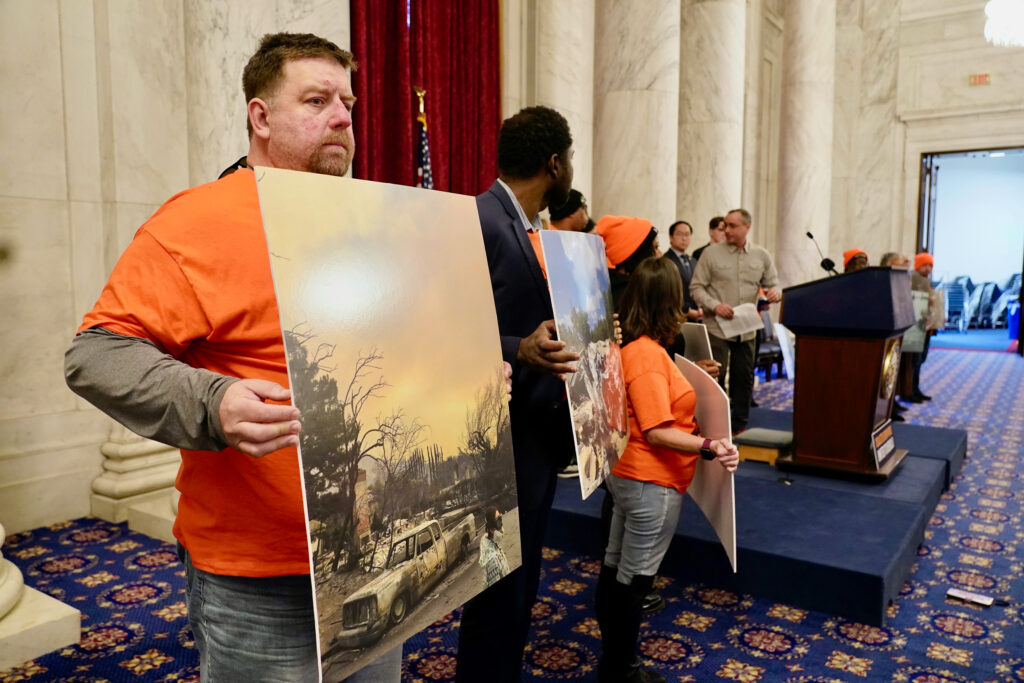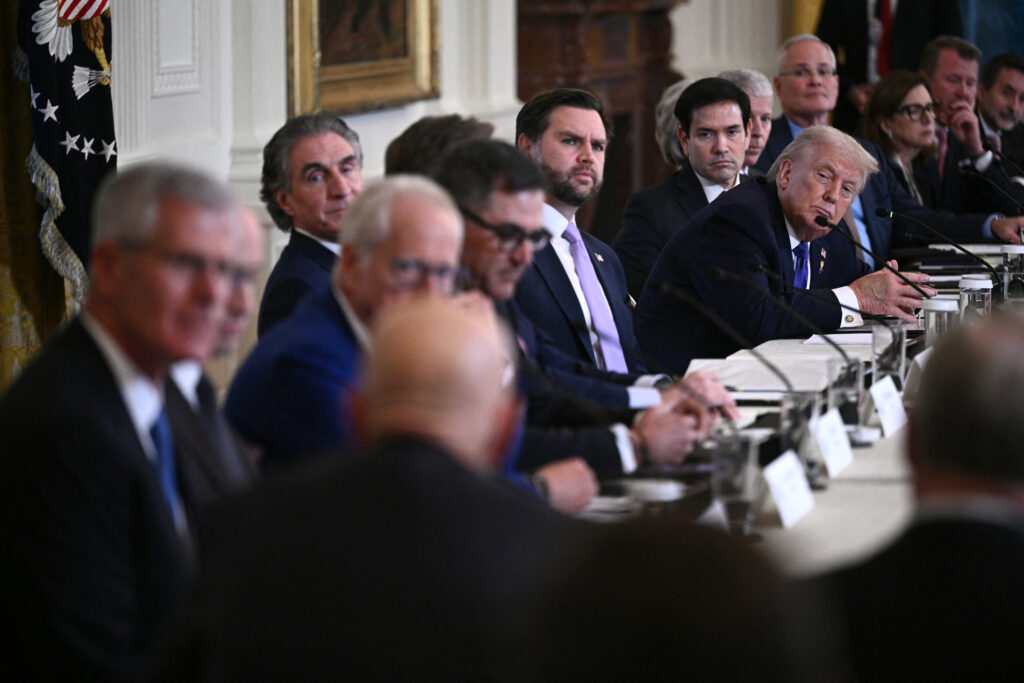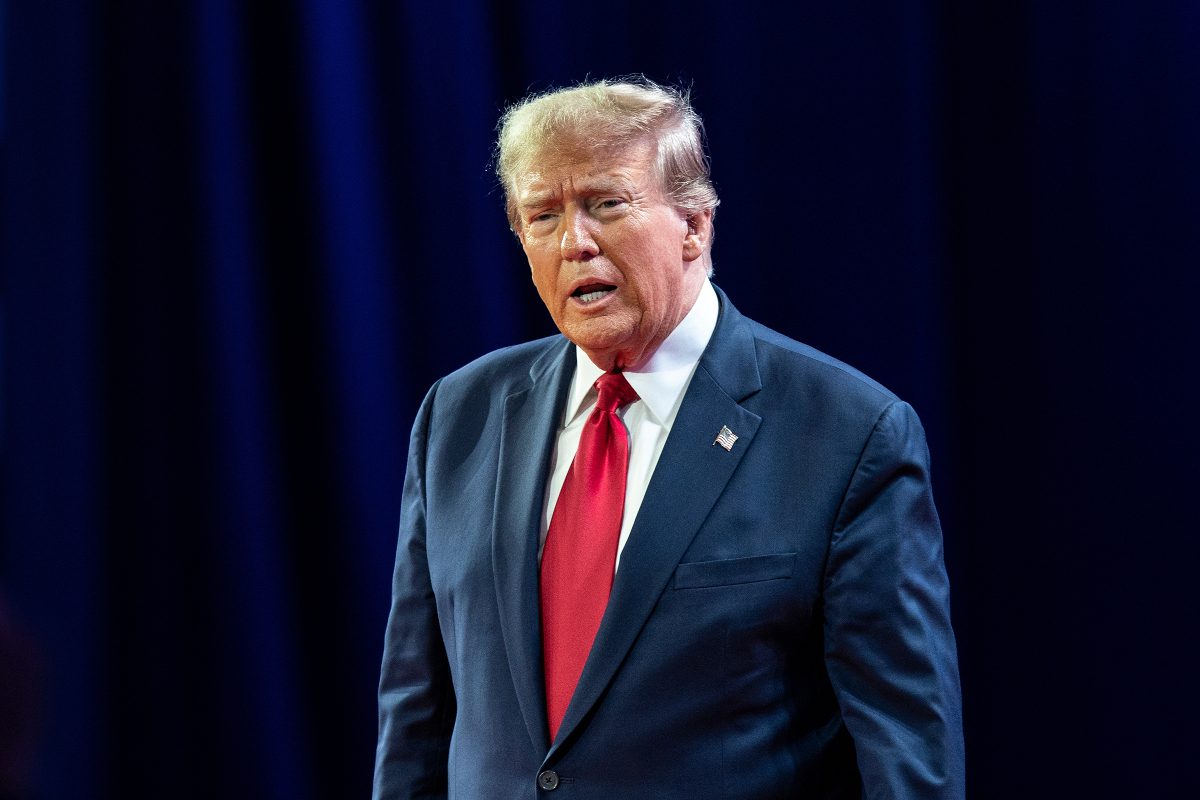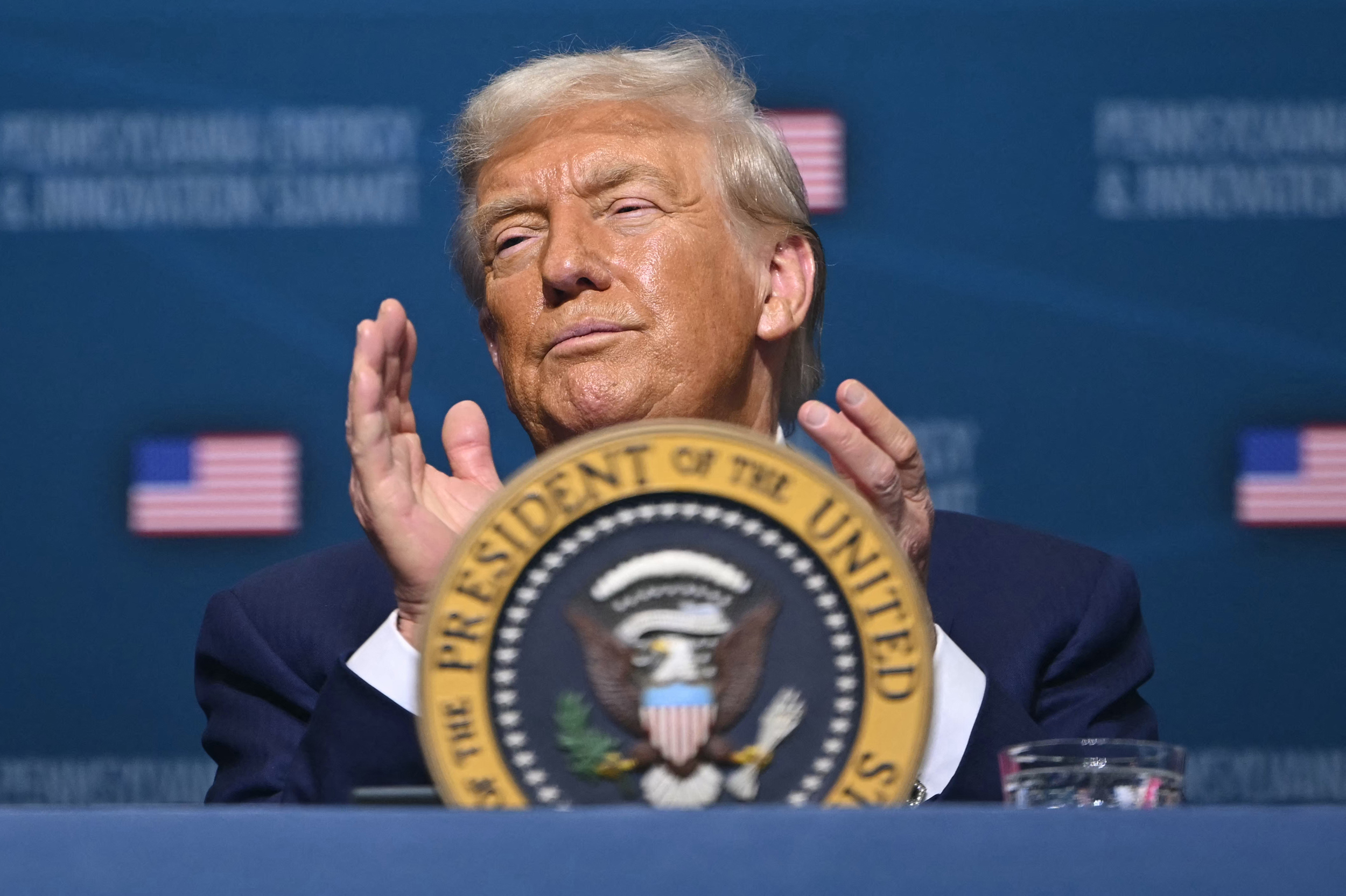Donald Trump was elected to his second term as president with the help of eight out of 10 white evangelical Christian voters, some of whom see the Florida businessman as the fulfillment of a divine mandate.
But there are millions in the country who consider themselves people of faith who now find themselves worried more than ever about where Trump will lead the United States, particularly how the Republican’s “drill, baby drill” agenda will hinder global efforts to stall climate change.
In his first four years as president, legal scholars counted some 200 environmental regulations that Trump rolled back. He pulled the United States out of the 2015 Paris Agreement about climate change. President Joe Biden has reversed most of those actions and persuaded Congress to pass the Inflation Reduction Act, the nation’s largest single investment in reducing climate-warming pollution.
With Trump preparing to return to office on Jan. 20, he has promised to take his pro-fossil fuel agenda to new heights by increasing already record-breaking U.S. oil production and gas exports while cutting regulations that protect air and water quality. He’s also said he will curtail federal support for a clean-energy transition boosted by billions of dollars of investments in electric vehicle capacity and renewable energy, and once again pull the United States out of the Paris Agreement, which he has described as a bad deal for the country.
All of this makes for a somber time for people of faith who are also strong proponents of policies that seek to get climate change under control—a view many see as spiritually inspired.
“I’ve been feeling a little bit numb since the election,” said the Rev. Susan Hendershot, president of Interfaith Power & Light, a national nonprofit that works on faith and climate issues but does not endorse candidates.
“And many of my colleagues are navigating what I would call the stages of grief, in terms of all of the emotions that go with that, from denial to anger to sadness,” she said.
But, she added, a source of motivation for climate action persists—“those underlying values of justice, compassion, hope and love.”

“We don’t always spend a lot of time in the climate space talking about love as a motivator,” said Hendershot, an ordained minister in the Christian Church (Disciples of Christ). “But I would say for many people of faith, that is the underlying motivator. They care about the world that their children are inheriting. They care about their neighbors who are suffering disproportionate burdens from pollution.”
It’s a message that can “unify people versus further divide people,” she said.
Global Religions and a Call for Climate Action
Major world religions have increasingly recognized the threat of climate change to the environment and people, often describing it as an affront to their faith teachings. This includes such religions as Buddhism, Catholicism, Protestant denominations of Christianity, Judaism, Islam and Indigenous traditions, according to the Yale Forum on Religion and Ecology.
In February, for example, the Islamic Foundation for Ecology and Environmental Sciences, a United Kingdom-based charity, cited teachings in the Quran, Islam’s holy book, when backing the Fossil Fuel Non-Proliferation Treaty. The treaty aims to chart a path for a fair and equitable phase-out of fossil fuel production, and the teachings the charity cited were about keeping creation in a perfect balance.
Earlier this month, at the opening of the United Nation’s 29th climate summit—COP29—the International Indigenous Peoples Forum on Climate Change noted in a statement that “2024 has been the hottest year in recorded history … causing devastating physical and spiritual losses and damages in our homelands.” Countries have “failed to take necessary action to phase out fossil fuels and implement a Just Transition to sustainable, non-carbon-based energy sources,” the statement read, calling for “real progress” for “future generations and the planet we call our Mother.”
The election has brought a new layer of analysis for people of faith.
The noted climate scientist, Katharine Hayhoe, an evangelical Christian, discussed the importance of mindset when facing adversity in a post-election interview with Inside Climate News.
“The most important part of my faith is not what it says about nature, but what it says about our attitudes and our mindsets,” she told reporter Dan Gearino a few days after the election. “For example, there’s this one verse in Second Timothy, where Paul’s writing to Timothy, who he mentored, and he says, ‘God has not given us a spirit of fear, rather a spirit of power, of love and a sound mind.’ And for me, that’s so impactful, because when I start to feel overcome or overwhelmed by fear, as many of us do when we’re dealing with these situations, I remind myself that that’s not coming from God.”
Faith as a Reservoir of Strength
In the wake of Trump’s election, Inside Climate News also spoke with leaders of four prominent U.S.-based faith organizations to gauge their mindsets and ask how they were viewing the election and the next four years through a faith and climate lens. To a person, they acknowledge sadness and concern of what will likely be setbacks in American climate policy, a need to tap into their spiritual reservoirs of strength and a deep sense of obligation to continue their work.
None of their organizations endorse candidates and each considers their climate work to be non-partisan. Their efforts are both inward, such as helping local faith communities work to save energy and reduce heat-trapping emissions, as well as outward, by advocating for policy solutions that address the climate crisis.
In April, for example, the Union for Reform Judaism, which represents the largest Jewish denomination in North America, agreed to divest itself of fossil fuels in response to climate change. The movement also has a program called “Power for Purpose,” which seeks to activate voters to support strong climate policies, such as Biden’s Inflation Reduction Act.


“The Biden administration … was incredible on this issue, and we got a lot achieved,” said Rabbi Jonah Dov Pesner, a senior vice president of the Union for Reform Judaism. “With this next administration, we don’t know what they’ll do. But we know what [Trump] has said, and we know what they did the last time. So we’re profoundly concerned.”
Through what comes, faith can be a reservoir of strength, he said.
Every week Jews can observe what they call Shabbat, a day of rest and worship.
“It’s literally a re-creation,” the rabbi said. “We’ll light the candles, which is, ‘Let there be light.’ It’s a returning to our roots as humans created in the image of God, and being invited in by God, who showed the first creatures the garden and said, ‘All of this I’ve created for you, but you better take care of it, till and tend it, be the stewards of it,’ because if you don’t, God said, ‘There won’t be another generation to come after you, and there won’t be another universe to protect.’”
Pesner described Shabbat as a “grounding experience,” providing an opportunity to be in nature and appreciate the gift of creation.
This story is funded by readers like you.
Our nonprofit newsroom provides award-winning climate coverage free of charge and advertising. We rely on donations from readers like you to keep going. Please donate now to support our work.
Donate Now
The Jewish faith is rooted in hope, Pesner said. “Despite thousands of years of exile and pogroms and attacks and anti-Semitism, we don’t get despair. We get hope,” he said.
With the climate fight right now, “there was some grieving, in a nonpartisan way,” but now “let’s sing, let’s pray, let’s hold hands and let’s march forward together,” he said.
Fear for a Granddaughter’s Future
About a year ago, Pope Francis criticized the United States and an “irresponsible lifestyle” for having some of the world’s highest carbon emissions per capita. He also called out the insufficient global response to the worsening climate crisis.
Other popes have commented on the need to care for the environment, but Francis has stood out as a global leader and moral force. His writings include the 2015 landmark “Laudato Si’: On Care for our Common Home,” the first papal teaching letter sent to all of the church’s bishops focused on the environment, asking people to hear “both the cry of the earth and the cry of the poor.”
His words have been aimed mostly at the world’s 1.3 billion Catholics but have resonated more widely with people who share his concerns. Even so, researchers in 2021 identified a substantial bottleneck—recalcitrance by U.S. Catholic bishops to fully embrace his teachings on climate change.


At the Catholic Climate Covenant, a group that works with Catholics nationally to inspire action on climate change and environmental justice, founder and executive director Dan Misleh urged a response focused on “heartwork,” or work done out of love inspired by the heart of Jesus Christ.
That’s a term inspired by Francis’ latest teaching document, “Dilexit nos,” which urges the world to counter indifference, greed and war and foster fraternity and care for creation.
“We need to stop looking at the screens, stop listening to podcasts, turn off the TV and sit in silence and search our hearts for what’s the right thing to do, and how we are to conduct ourselves in this short time we have on Earth,” Misleh said.
“So the walks I take in nature, the work that we do at Catholic Climate Covenant, it’s all part of the heartwork. If we listen to our hearts, our hearts are going to be telling us that we need to take care of God’s creation. We need our hearts to tell us that we need to be concerned about future generations. I’m a fairly new grandfather, and I fear for my granddaughter’s future because of what we’re doing to the planet. That’s heartwork.”
An Evangelical Leader Looks for Common Ground
Evangelical protestants, who largely identify as Republicans, tend to be the most likely of all major U.S. religious groups to be skeptical of human-caused climate change, according to the Pew Research Center.
R. Albert Mohler Jr., the president of the Southern Baptist Theological Seminary in Louisville, Kentucky, has said that it is “plausible” that humans may be affecting the climate given the scope of human activities. But he has also said he doubts the work of scientists who have documented climate change and identified its fingerprints on worsening disasters, and he objects to any suggestion by environmentalists that people “are a blight on the planet” when the Bible instructs humans to “go forth and multiply.”
But not all evangelicals agree with those kinds of climate comments.
The Evangelical Environmental Network sees itself as a “ministry that educates, inspires, and mobilizes Christians in their effort to care for God’s creation.” It’s led by the Rev. Jessica Moerman, the co-founding pastor of Grace Capital City church in Washington, D.C., and a climate scientist with a Ph.D. in earth and atmospheric sciences from the Georgia Institute of Technology.
“Across the electorate, people are bringing a lot of different issues together to then make a binary choice of who to vote for,” Moerman said.
“We need a divine imagination to spark, to lift our eyes to see what’s possible.”
— Rev. Jessica Moerman, Grace Capital City church
A large majority of white evangelicals also recognize a religious duty to care for God’s creation, she said. “I see an opportunity to help connect the dots there and make that connection of how important policy decisions are for being good stewards of God’s creation.”
The election outcome, she said, reminds her that “we need to reach out beyond the typical environmentalist crowd … to build this politically diverse coalition that’s absolutely required to sustain climate progress into the future, and to meet our climate goals. Right now, we’re facing a situation where from administration to administration, one builds on climate progress and the next can tear it down.”
In the coming year, she said, she will be working to help retain as much of the Inflation Reduction Act’s support for clean energy projects as possible. Many projects are in Republican stronghold states, she noted, and in August, 18 House Republicans wrote to Speaker Mike Johnson (R-La.), requesting he not cut clean energy tax credits in the IRA next year.
Plus, she said, she will be looking for common ground between Republicans and Democrats to find climate interests that cross political lines.
“We need a divine imagination to spark, to lift our eyes to see what’s possible,” Moerman said.
For her part, Hendershot with Interfaith Power & Light agreed that a big-tent approach to climate action is necessary. She said she finds solace in the knowledge that “all of these major religious traditions have something to say about caring for the earth, and they all have something to say about caring for our neighbors—and climate change impacts both of those.
“And so I think remaining in conversation and in community with one another is going to be really, really important as we look at what’s ahead of us over the next few years,” she said.
About This Story
Perhaps you noticed: This story, like all the news we publish, is free to read. That’s because Inside Climate News is a 501c3 nonprofit organization. We do not charge a subscription fee, lock our news behind a paywall, or clutter our website with ads. We make our news on climate and the environment freely available to you and anyone who wants it.
That’s not all. We also share our news for free with scores of other media organizations around the country. Many of them can’t afford to do environmental journalism of their own. We’ve built bureaus from coast to coast to report local stories, collaborate with local newsrooms and co-publish articles so that this vital work is shared as widely as possible.
Two of us launched ICN in 2007. Six years later we earned a Pulitzer Prize for National Reporting, and now we run the oldest and largest dedicated climate newsroom in the nation. We tell the story in all its complexity. We hold polluters accountable. We expose environmental injustice. We debunk misinformation. We scrutinize solutions and inspire action.
Donations from readers like you fund every aspect of what we do. If you don’t already, will you support our ongoing work, our reporting on the biggest crisis facing our planet, and help us reach even more readers in more places?
Please take a moment to make a tax-deductible donation. Every one of them makes a difference.
Thank you,




